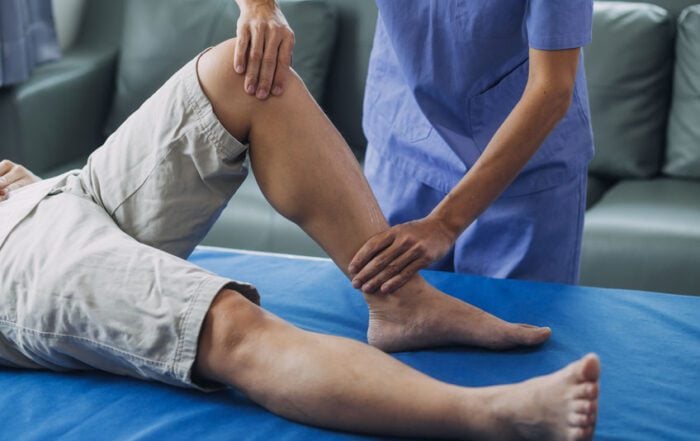Arthritis After Meniscectomy
A meniscus tear is a common injury among athletes but can happen with age. If a doctor recommends a meniscectomy, the goal is to remove the torn meniscus. Along with reducing pain and restoring mobility, the patient should have long-term use of the knee. Studies show that a meniscectomy increases the risk of post-op arthritis. This unintended side effect can discourage many from proceeding with surgery. However, there are some helpful ways to keep knee arthritis to a minimum.

What is meniscectomy?
The menisci are 2 crescent-shaped pieces of cartilage that sit on top of the tibia. The cartilage stabilizes and absorbs shock between the thigh and shin bones, especially when running or jumping. However, a blow to the knee or sudden twist can cause a partial or complete meniscus tear. Meniscectomy is a surgical procedure to remove damaged cartilage if the knee does not respond to conservative treatment. Thanks to minimally invasive surgery (MIS), meniscectomy is performed as an outpatient procedure. The surgeon makes 1-2 small incisions and inserts tools to view and remove the damaged meniscus. Meniscectomy recovery can take as long as 6 months, depending on the location and degree of damage.
Will I develop arthritis?
Inflammation in the joints, known as arthritis, is a joint condition affecting millions of American adults. Osteoarthritis is the most common form, where gradual wear and tear causes shock-absorbing cartilage to wear away. If part or all of the meniscus is removed, there is insufficient protection and more load on the bones. Some studies show that over 60% of patients develop some degree of knee arthritis 8-10 years after surgery. The risk is notably higher for athletes or active patients that depend on the knee.
Preventing arthritis
Improving the strength of the quadriceps, hamstrings, and calf muscles can help over time. After recovery, strength training, swimming, cycling, and yoga are excellent options. If possible, reduce high-impact movements like jogging. Use ice packs to reduce swelling after exercise or a long day standing. Wearing a knee brace or other compression garments can help support and stability. To prevent long-term inflammation, doctors often recommend a diet high in fiber, antioxidants, and minerals while avoiding processed foods.
Is post-op arthritis inevitable?
Meniscectomy is sometimes a necessary procedure for a torn meniscus. Conservative treatments like physical therapy (PT) and bracing can work. However, if there is constant catching, creaking, stiffness, and weakness, surgery may be necessary. While there is no guarantee arthritis will not develop, prioritizing exercise and recovery are the best options. If there are concerns about arthritis, speak with the surgeon.
Recent Posts
What To Do About Hip Pain: Is It Time To See An Orthopedic Surgeon About Labral Repair?
Hip pain should not be overlooked, as the issue could be a labral tear. Symptoms like pain and instability require an orthopedic surgeon’s assessment.
ACL Repair: Will You Have Range Of Motion With Your Knee After Recovery & Physical Therapy?
After an ACL injury, ROM can be negatively affected. ACL repair surgery helps restore function, but physical therapy is essential to ROM.
Arthroscopy: What Are The Benefits Of This Minimally Invasive Outpatient Orthopedic Procedure?
Arthroscopy can help diagnose or treat joint conditions. Benefits of the MIS include faster recovery, less pain, and fewer scars.
Posterior Interbody Lumbar Fusion: What Are The Benefits Of PLIF For People With Back Pain?
People with chronic back pain may benefit from posterior interbody lumbar fusion surgery. PLIF can reduce pain and improve stability.








